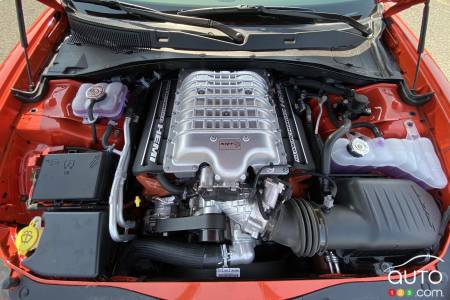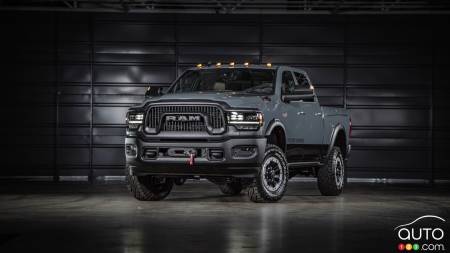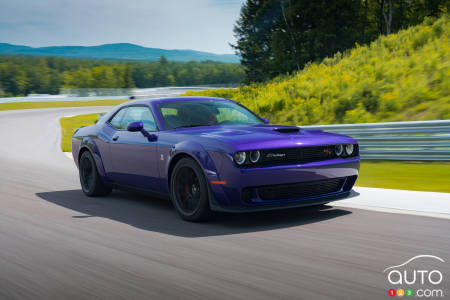It’s no shock to be told, in 2021, that in the near-future gasoline engines will start to disappear from the landscape. Nor is it much of a surprise to hear that V8s will be the first to go. But when you hear it from the CEO of an automaker that still relies heavily on those big guns, you sit up and pay heed.
That's what happened last week when Dodge big boss Tim Kuniskis told CNBC that the days of supercharged V8 engines are numbered. Our first thoughts race to the Hellcat engine, but that includes all strengths of 8-cylinder units.
Not that performance cars are going anywhere – they’ll be relying for their power on electric powertrains, which are more than up to the task. But the feeling will never be the same.
It’s worth noting that the disappearance of Hellcat engines and others like it won’t happen because of flagging demand. The models that currently use them, the Challenger and Charger, continue to sell very well. Kuniskis pointed out that over the past five years, his company sold more than 50,000 vehicles equipped with this engine.
Instead, he attributes the eventual demise of the V8 engines to upgrade costs, particularly the need to modify them to comply with new and upcoming emissions regulations. We need only think of the 2021 Dodge Durango SRT Hellcat. It is in the Dodge lineup this year, but it won’t be next year – and the only reason is that in 2022 it will no longer comply with the rules that will be applicable to it.
Discover Shopicar! All new makes and models and all current promotions.

In his interview with CNBC, Kuniskis also said that Dodge will continue to focus on "American muscle" products under the ownership of new parent company Stellantis.
“The whole world is going to shift to electrification,” he said. “The whole world’s going (to) get there and when it does, the price point of that technology is going to come down.”
This is not the first time we've heard the words electrification and Dodge spoken together. In 2019, Mike Manley, then head of FCA (Fiat Chrysler Automobiles) and now head of the North American division of Stellantis, suggested that the engines of the next Challenger and Charger would be partially electrified. Stellantis CEO Carlos Tavares also said that all new models launched by the company will feature some form of electric-powertrain technology.
The combustion engine really seems destined for extinction, whether that thrills you or not. Recently, GM announced that it would no longer sell gasoline-powered vehicles starting in 2035. Nissan has set a similar goal, and several American states are moving to legislate along those lines. Here in Canada, Quebec has already announced its intentions to move in this direction.
Of course, there will always be the used and collectors’ car markets, but nothing will be the same anymore. If you want to take advantage of a V8 engine, now's the time to think about it.
The irony in all this is that the money raked in by automakers like Dodge with its Hellcat engine, or Ford and GM with their sales of SUVs and pickup trucks with V8 engines (there are more V8s in the lineup at GM than at Ford) helps finance the electric shift these companies have to pay for. In a sense, these V8-powered beasts are paying to make possible their own demise.




